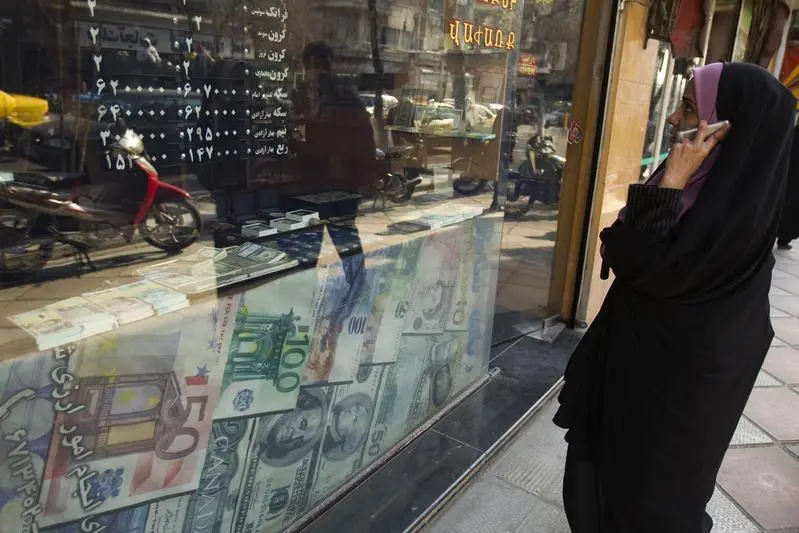PHOTO
With sanctions eased, Shari'ah-compliant banks stand to benefit hugely, writes Azadeh Meskarian, Solicitor at Zaiwalla & Co.
Iran is one of the pioneers of Islamic finance and their history of Islamic finance goes back to 1983. Following the Islamic revolution, Iran passed regulation forcing its entire banking system to rebuild into an Islamic one. More than 30 years on, the Iranian banking industry remains completely regulated by Shari'ah and is by far the world's largest centre of Islamic banking.
An often-ignored area within Islamic finance is the establishment of an inclusive national interest-free banking system in Iran. The core of Islamic finance around the world is associated with the ban on the payment of certain types of interest. Somehow in this case Iranian banks still effectively use interest-based transactions and retain the accounting standards of conventional banking.
The shadow of sanctions
The international community became concerned that Iran was allegedly pursuing the establishment of a nuclear weapon resurfaced.These suspicions continued into the mid-1990s, when President Bill Clinton's government imposed sanctions on foreign firms believed to be allowing a nuclear-arms programme.
In the early 2000s, indications of work on uranium enrichment renewed international concerns, spurring several rounds of sanctions from the UN, European Union, and US Government. These international sanctions have sought to block Iran's access to nuclear-related materials and put an economic restriction on the Iranian government to compel it to end its uranium-enrichment program. Over the last few years Iran's economy was weakened by the imposition of sanctions by the US and EU, amongst other countries, on its financial, banking and energy sectors.
It will take time for Iran to recover from the knock-on effects of these sanctions, which led to a dramatic the fall of the Iranian rial and unexpectedly high inflation. Poor exchange rates seriously affected the lives of local Iranians, foreign companies and individuals with an interest in investing in the country. Foreign investors were left with the choice of either closing down or significantly reducing their activities. Unmistakably these prohibitions made it impossible for Iranian banks and their foreign subsidiaries to carry out transactions with the rest of the world whilst European banks with representatives operating there, again, had to close up or reduce their activities.
Post-sanctions growth for Islamic finance
The lifting of sanctions has not only enhanced Iran's economy but has also provided an opportunity for Shari'ah-compliant investment with diversification opportunities. There is a particular demand that Iran's growing economy accommodates investment that will bolster its strength beyond dependence on oil. For Iran--one of the largest players in the Islamic finance industry contributing to around 40 per cent of global Islamic banking assets--the lifting of sanctions has only helped boost Islamic finance.
The lifting of sanctions have also restored Iran's access to the global financial markets. Under this scenario, Iran's GDP growth would hover around six per cent annually in fiscals 2017 and 2018 according to market estimates, compared with less than one per cent in 2015. Iran's Islamic banking assets are $482 billion, according to Dubai Government data from 2014. That's more than in Saudi Arabia, Malaysia and the United Arab Emirates combined. Islamic finance in Iran can benefit from the sheer volume of the post-sanction investments and such projects are reportedly high. This will in turn support the market growth and create growth opportunities for the banking system in Iran.
About Zaiwalla & Co Solicitors
Zaiwalla and Co. Solicitors is an international law firm based in Chancery Lane, City of London, with expertise in sanctions, arbitration, litigation and mediation.
The firm acts for both domestic and overseas clients including corporations and state entities, as well as individuals. Their practice areas cover both contentious and non-contentious law, including domestic and international litigation, international commercial arbitration, shipping, banking, project finance, energy, company commercial and immigration.
Founded in 1982 by Mr Sarosh Zaiwalla, the first Asian individual to establish a law firm in the City of London, Zaiwalla and Co. Solicitors has been involved in over 1,200 international litigations and arbitrations in the fields of Energy, Maritime and Construction. Previous clients of the firm range from the President of India, the Government of the People's Republic of China (PRC) and the Iranian Government to the Bachchan and Gandhi families in India.
Zaiwalla & Co. Solicitors benefits from the expertise of a strong international team, including specialists in the laws of Russia & CIS, China, India, Middle East and Iran.
© Islamic Business and Finance 2016





















